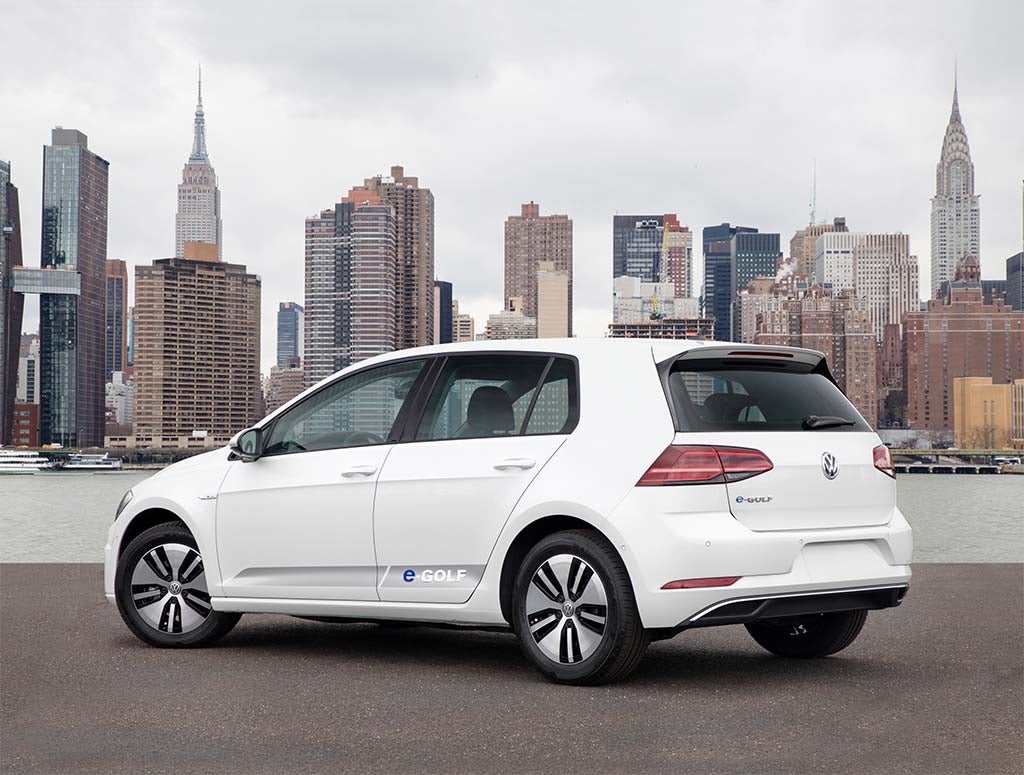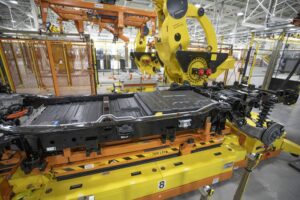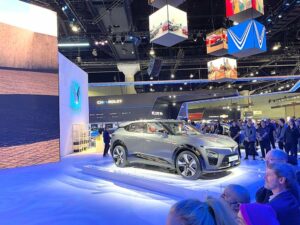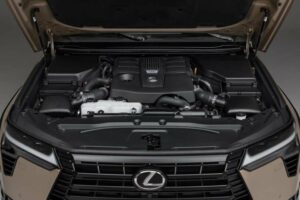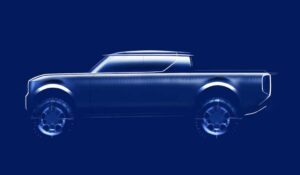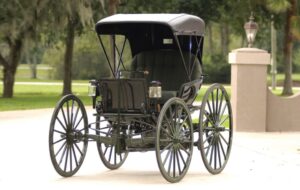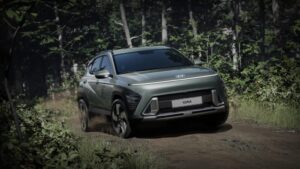
Could another all-electric Volkswagen Golf be on the way? According to online reports, the answer is yes.
The battery electric Golf or Tiguan could be coming since the company’s Trinity flagship EV project has been pushed back from 2026 to 2030, according to CEO Oliver Blume.
The speculative product plan was reported by German news site Handelsblatt.
The new BEVs would be built on an updated MEB electric platform in Wolfsburg side-by-side with the gasoline-powered Golf and Tiguan. If the plans prove true, an e-Golf could reach showrooms by 2026, according to Handelsblatt.
Indecision remains
But there’s still uncertainty over the project, as Volkswagen CEO Oliver Blume is still debating whether to produce future EVs in a new facility next to or in its current Wolfsburg factory.

It all revolves around VW’s Trinity project, which employs a new SSP (Scalable Systems Platform) software-guided platform that will allow for autonomous driving. The new EVs were supposed to be built in a new facility, with construction starting next year, and models arriving in 2026. But that project has now been delayed until the end of the decade due to delays in readying the software.
The project was an attempt by Volkswagen to challenge Tesla, which has proven to be the most popular American brand sold in Europe and was championed by Volkswagen’s previous CEO, Herbert Diess. Blume replaced Diess as CEO last September.
Volkswagen sold an e-Golf from 2014 to 2019 in the U.S., although it remained in production through 2020. The e-Golf’s 35.8-kWh battery pack was located under the rear seats, so as not to rob interior space. With 134 horsepower and 125 miles of range, the e-Golf was competitive with BEVs of the era. It was far from a speed demon despite its peppy feel, but it proved fun-to-drive nonetheless.
The company stopped building the e-Golf in 2020, with the arrival of the ID.3 in Europe. It then stopped selling the Golf in the U.S. in 2021 after 46 years, throwing away four-plus decades of marketing and consumer familiarity. Whether the Golf returns as an EV remains a question. If it does, it could arrive in GTI trim.
And it wouldn’t be the only EV returning for a second spin, as Fiat is planning to revive the 500e for 2024.
Lackluster sales
Volkswagen is currently offering the battery-electric ID.4 in the United States, having sold 20,511 last year. But it was outsold by the Kia EV6, Hyundai Ioniq 5, Tesla Model X, Chevrolet Bolt EV/EUV, Tesla Model S, Ford Mustang Mach-E, Tesla Model 3 and Tesla Model Y.

No doubt the ID.4’s poor showing might have VW questioning whether to continue with its EV nomenclature, especially considering Volkswagen sold 25,858 Golfs in 2020, its last full year of sales in the U.S.
Branding is important, however, one German automakers seem to be ignoring with EVs.
Like Volkswagen, Mercedes-Benz is also endowing its EVs with a unique name, EQ. The company sold 8,005 EQS models in 2022, as opposed to 15,927 S-Class models during the same period. As the company starts building more EVs, online reports suggest that Mercedes-Benz could drop the name as it would be unnecessary.
But beyond branding, Volkswagen is finding that its manufacturing efficiency lags Tesla’s, with production of the Volkswagen ID.3 taking three times longer than the 10 hours required to build a Tesla Model Y. In fact Toyota and, Kia and other automakers are now using Tesla’s production efficiency as a benchmark for their own EV production.
- SEO Powered Content & PR Distribution. Get Amplified Today.
- Platoblockchain. Web3 Metaverse Intelligence. Knowledge Amplified. Access Here.
- Source: https://www.thedetroitbureau.com/2023/02/the-return-of-the-volkswagen-e-golf/
- 10
- 2014
- 2019
- 2020
- 2021
- 2022
- a
- According
- After
- All
- all-electric
- Although
- American
- and
- Another
- answer
- around
- arrival
- arriving
- automakers
- autonomous
- back
- battery
- Benchmark
- Beyond
- Bolt
- brand
- branding
- build
- Building
- built
- ceo
- challenge
- championed
- Chevrolet
- chevrolet bolt
- coming
- company
- Company’s
- competitive
- considering
- construction
- consumer
- continue
- could
- Current
- Currently
- debating
- decade
- decades
- Delayed
- delays
- Despite
- doubt
- driving
- Drop
- during
- efficiency
- Electric
- employs
- Era
- especially
- Europe
- EV
- expectations
- Facility
- factory
- Familiarity
- finding
- flagship
- Ford
- from
- full
- future
- German
- golf
- GTI
- having
- HOURS
- However
- HTML
- HTTPS
- Hyundai
- important
- in
- interior
- IT
- Kia
- Last
- Last Year
- located
- longer
- manufacturing
- Marketing
- max-width
- might
- model
- models
- more
- most
- Most Popular
- name
- New
- news
- next
- offering
- ONE
- online
- opposed
- Other
- own
- Pack
- period
- plan
- planning
- plans
- platform
- plato
- Plato Data Intelligence
- PlatoData
- poor
- Popular
- previous
- produce
- Product
- Production
- project
- Prove
- proved
- proven
- pushed
- question
- range
- reach
- Readying
- remained
- remains
- replaced
- Reported
- Reports
- required
- return
- returning
- returns
- Revive
- sales
- same
- scalable
- Second
- Selling
- September
- since
- site
- So
- Software
- sold
- Space
- speed
- Spin
- Starting
- starts
- States
- Still
- stopped
- supposed
- Systems
- taking
- Tesla
- The
- their
- three
- Through
- Throwing
- times
- to
- toyota
- Trinity
- true
- u.s.
- Uncertainty
- under
- unique
- United
- United States
- updated
- volkswagen
- vw
- whether
- which
- will
- would
- X
- year
- years
- zephyrnet

